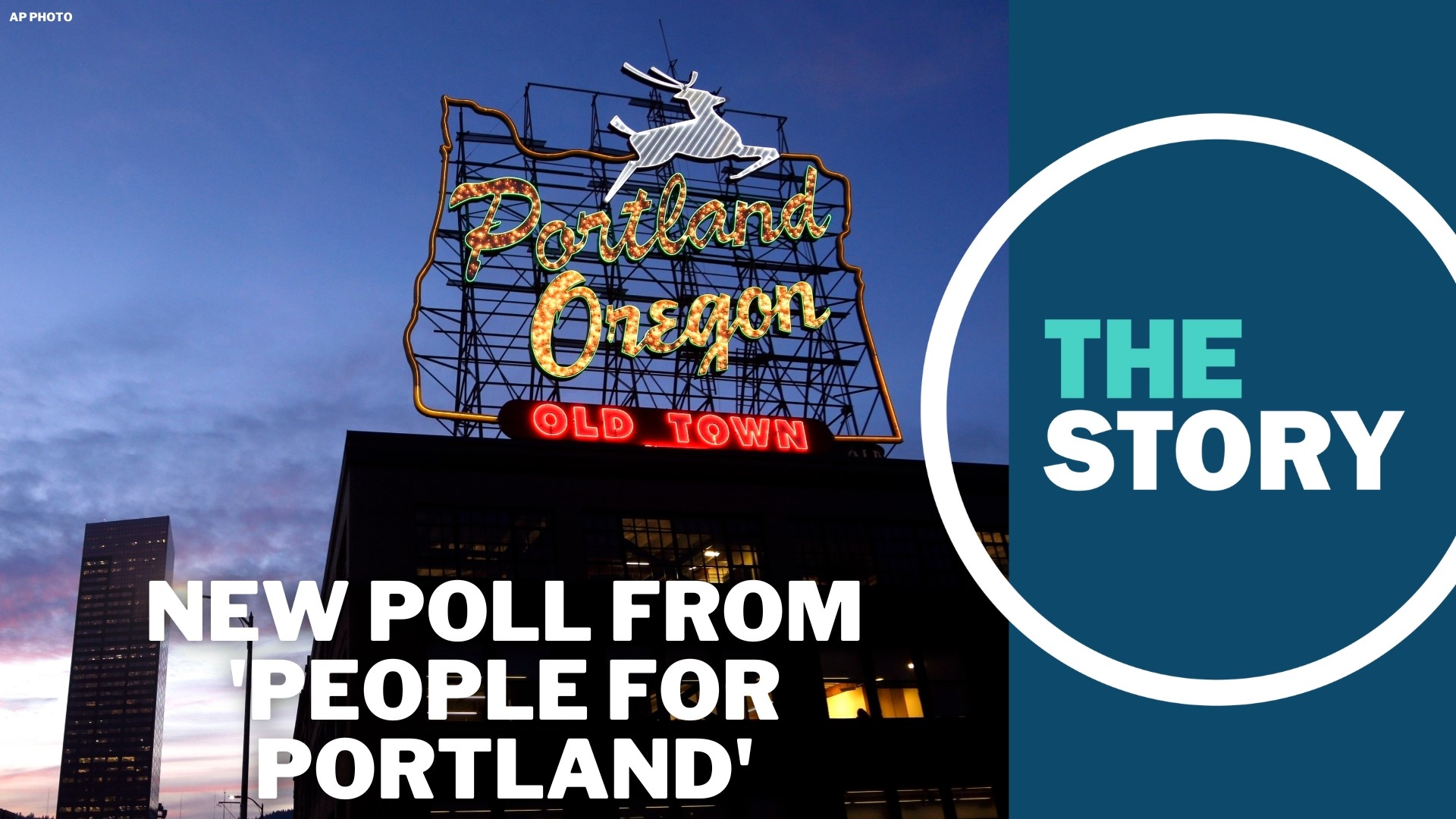PORTLAND, Ore. — Advocacy group "People for Portland" recently came out with a new poll suggesting that 71% of likely voters in Multnomah County are in support of Mayor Ted Wheeler's proposed ban on homeless camps during daytime hours.
The group paid an Idaho-based polling firm called GS Strategy Group to conduct the poll. According to records on Open Secrets, the firm's biggest customers in recent years have been Republican-affiliated political action committees and campaigns.
GS Strategy Group said they surveyed 500 likely voters in Multnomah County for the poll, with a margin of error plus or minus 4%.
Some of the results included this one: 75% of respondents agreed that homelessness in the Portland area is an "out-of-control disaster." By contrast, 17% said it's "manageable but not great" and 6% said it's "turned the corner and making progress."
In response to a question about addiction and mental health services, 67% said that drug addiction and mental health treatment should no longer be voluntary, while 25% said it should remain voluntary.
As KGW has covered in the recent past, the circumstances under which someone is committed to psychiatric care is mostly not up to local governments in Oregon, although some local resources can be used for short-term holds.
Dan Lavey, a Republican political consultant and one of the two founders of People for Portland, told The Story that the poll results show that most people have had enough of business as usual in Multnomah County.
"I think it shows the level of frustration people have. They know our homeless crisis now goes far deeper than homelessness," Lavey said. "It gets to addiction and mental health. People are no longer willing to just say it’s a voluntary — they’re expecting behavior change. In exchange for government help, housing, treatment they want personal responsibility. They want people to change their behavior. They’re willing to help them do it.”
The poll found that 55% of respondents felt that Portland has lost its way, while 40% said it's still a special place to live.
When asked about influence on local leaders, 65% said they believed elected officials are listening to a small group of political activists as opposed to a majority of citizens.
On the money side, 47% of respondents said they would vote to repeal the 10-year tax on high-income earners and businesses that's expected to provide $2.5 billion for homeless services. By contrast, 41% said to keep it.
At the same time, 67% agreed that Multnomah County does not have a homeless plan and is wasting money.
That last result came from something of a "push question." Respondents were told in the question itself that one commissioner recently said that the county has spent nearly $1 billion over the past several years on homelessness, but still has no plan and no way to measure progress.
It is true that Commissioner Sharon Meieran said as much — she recently told that to The Story's Pat Dooris in a lengthy interview. However, including that statement in the question itself encourages a certain kind of answer.
It's also far from the only question like that in the survey. Opposition to Multnomah County District Attorney Mike Schmidt has been a hobbyhorse for People For Portland for a while now — they coined the "Portland is a Schmidt-show" phrase that's appeared in ads and on billboards — so it's unsurprising he showed up quite a bit in the poll.
One question asked if the DA's policies are doing a good or bad job of ensuring public safety in Multnomah County — begging the question that his policies are primarily responsible for public safety outcomes, especially when unaccompanied by similar questions about other officials responsible for public safety. Of the respondents, 57% said Schmidt's policies were doing a bad job, 11% said good job, and 32% weren't sure.
Later, when posing questions about the overall job done by different elected officials, the poll found that 45% disapproved of Schmidt's work, 22% approved and 33% weren't sure. Though a similar sort of question, the framing of it shifted the outcome by more than 10%.
People For Portland's other founder, Democratic political consultant Kevin Looper, largely echoed his partner in asserting that the poll shows the public is fed up and think political leaders are out of touch with voters.
Looper pointed to the responses to another question, where 51% said that a top priority for addressing homelessness should be "creating more addiction and mental health services for the homeless," while 34% said the priority should be building more permanent housing for the homeless.
RELATED: At the intersection of homelessness, mental illness and addiction in Portland lies psychosis
"We’re being ruled by a small number of people who are very ideologically driven, and that question about should we be doing services for people, in addition to housing or just housing, gets to the heart of the ideological problem," Looper said. "There’s a group of people who believe that housing-first is the only mantra. And they won't fund mental health and they won't fund drug addiction. And everybody practically involved with trying to fix homelessness knows that it turns out, someone who has a mental health problem or a severe addiction isn’t going to make good choices. And maybe we might need to use the legal system to interdict their behavior and get them on a better path.”

